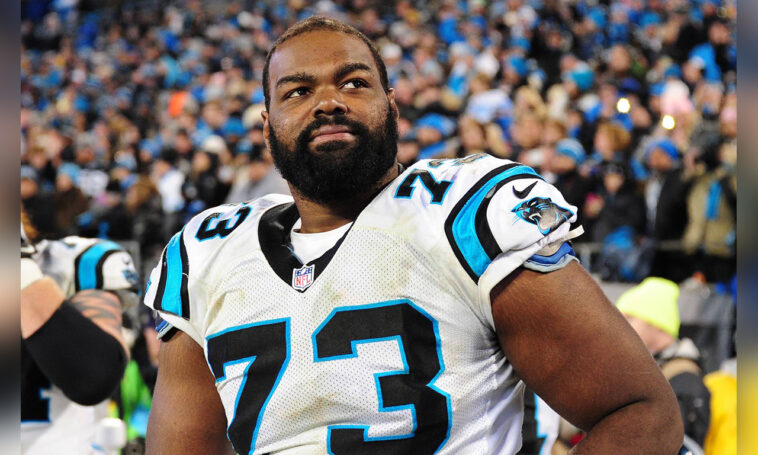Michael Oher speaks out about his lawsuit against the Tuohys, addressing the impact of “The Blind Side” and his desire to reclaim his identity.
Former NFL star Michael Oher has finally spoken out about the lawsuit he filed last year against Leigh Anne and Sean Tuohy, the couple who were famously portrayed in the 2009 film “The Blind Side.” Oher’s life story, which the movie depicted as a heartwarming tale of a troubled youth taken in by a generous family, has taken a darker turn with these legal revelations.
Oher’s lawsuit accuses the Tuohys of deceiving him into signing a conservatorship rather than legally adopting him, which gave them control over his finances and significant life decisions. According to Oher, this arrangement allowed the Tuohys to profit from his life story, especially from the book and the movie, while he received little to none of the financial benefits. The Tuohys have claimed that Oher was paid over $138,000 in proceeds, but Oher argues that he was unfairly left out of the bulk of the profits.
In a recent interview with The New York Times, Oher expressed his deep hurt over how the movie has defined him in the public eye. He revealed that the portrayal of him as unintelligent and clueless, especially regarding football, has caused lasting damage to his reputation and career. Oher explained that NFL teams questioned his abilities because of the film’s portrayal, even though scouts had recognized his talent long before the Tuohys entered his life.
“The movie made people think I was someone I’m not,” Oher said in the interview. “It showed me as less capable than I really am, and it hurt my career. People thought I couldn’t read a playbook because of how they depicted me.”
Oher also reflected on his relationship with the Tuohys, acknowledging that while he shared positive memories with the family, he has grown increasingly uncomfortable with how his life story has been used for their benefit. For years, he went along with the narrative presented in the movie, but recent self-reflection has led him to challenge that story and reclaim his identity.
For Oher, the lawsuit is about more than just money—it’s about setting the record straight and taking back control of his own story. He wants people to know that he was more than just a charity case or a football project; he was a talented athlete with dreams and goals of his own, independent of the Tuohys’ influence.
While the Tuohys continue to deny Oher’s allegations and have declined to comment on the recent interview, the legal battle highlights the complexities of their relationship and the broader implications of how “The Blind Side” has shaped public perception of Oher.
As this lawsuit progresses, it raises important questions about the ethics of storytelling, particularly when it involves real people whose lives are dramatically altered by the way their stories are told. For Michael Oher, this is not just about correcting the past but also about reclaiming his future.
The case continues to attract significant media attention, and it remains to be seen how the courts will rule on the matter. However, one thing is clear: Michael Oher is determined to reclaim his narrative and ensure that his true story is told.



